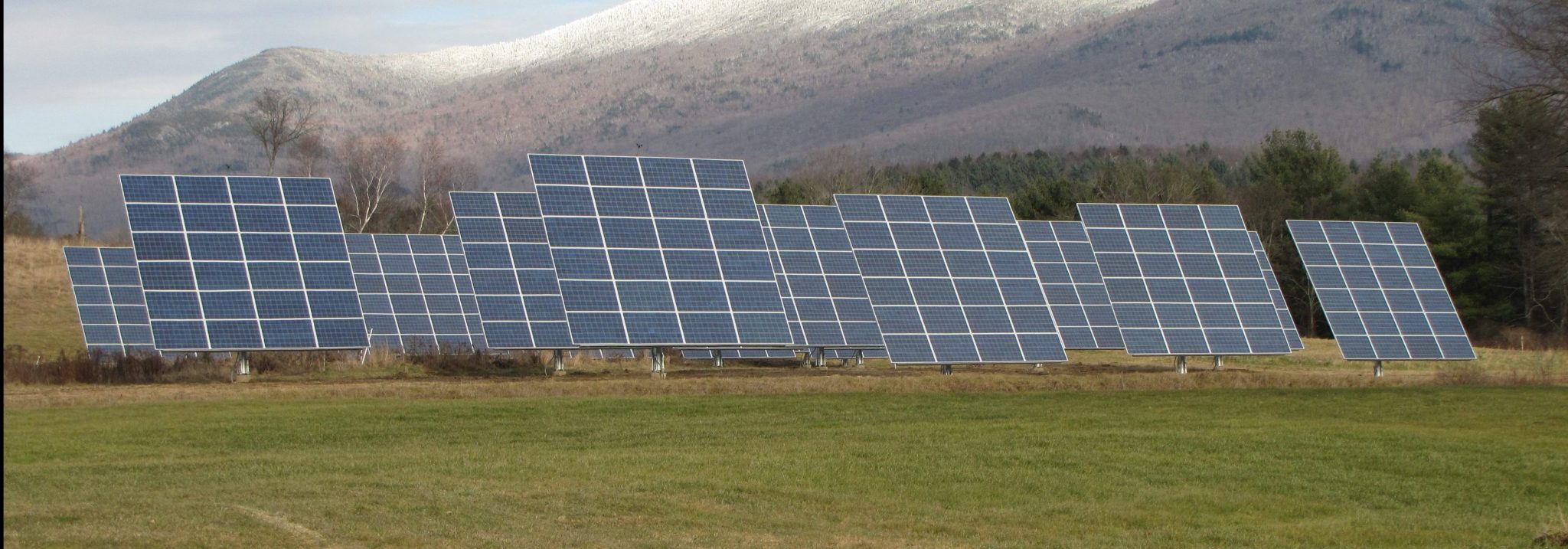On April 10, VNRC’s Energy & Climate Program Director Johanna Miller sent the following letter to Senate Appropriations members — who are considering the House-passed budget — in response to learning that the Scott Administration made a recommendation to strip the few remaining dollars in the Clean Energy Development Fund. Read the letter below.
April 10, 2018
Re: H.924 and the Clean Energy Development Fund
It came to our attention late last week that the Scott Administration has requested that $500,000 be transferred from the job-creating Clean Energy Development Fund (CEDF) to the General Fund. At the same time, the Administration appears unwilling to try to recoup $453,000 in funds intended for the CEDF. In total, if these efforts are successful, it would equate to an almost $1 million loss to the CEDF. In fact, these moves would likely deplete the CEDF in its entirety.
In 2006, the CEDF was established in 30 V.S.A. § 8015(a) with funds to “be expended solely for the purposes set forth in this subchapter and shall not be used for the general obligations of government.” The mission of the CEDF – of which I have been an appointed Board member since 2014 and VNRC has long advocated for as an important economic driver in the state – is to spur clean energy investments and grow the renewable energy market sector in Vermont. The CEDF has been successful in its mission and pivotal in helping the state’s clean energy job sector become one of the fastest growing in Vermont. The CEDF has helped put Vermonters to work in making homes and businesses more efficient, clean and affordable. If these changes move forward, it leaves programs that support advanced wood heating, school and municipal energy projects, renewable on-farm solutions and more vulnerable – or on the chopping block.
While the Administration offers the $500,000 shift as a suggested “technical correction” to the House-passed budget, making this change would be detrimental for this successful fund; likely putting an end to the CEDF and the associated benefits to the state’s economy.
The shortsightedness of the proposed $500,000 raid is compounded by the reality that the CEDF is already short over $453,000 owed to it as a result of funds transferred to the State to cover the potential but ultimately unrealized expenses for a solar tax credit. In an attempt to remedy this, the CEDF board has urged the Scott Administration to work to bring those owed dollars back into the CEDF. Unfortunately, it appears that the Administration is not only ignoring this request from the CEDF board (and statute) but also working to zero out the budget of the CEDF completely.
In 2014, the CEDF reprioritized its programs and is largely focused now on building the market and opportunity for Vermonters to invest in advanced wood heating systems. Not only is a strategic focus on this sector a potentially powerful job-creating, competitive advantage for Vermont, but a deeper focus in this arena could have significant greenhouse gas reduction benefits. Unfortunately, the Administration’s efforts could jeopardize local businesses and jobs and hinder our ability to make needed progress on our climate and clean energy goals.
These efforts by the Administration are also oddly-timed, considering Governor Scott’s creation of a Climate Action Commission and his charge to that Commission of making recommendations that reduce greenhouse gas emissions and put people to work in the clean energy economy – two of the primary outcomes of the CEDF. As one of the 21 people appointed to the Climate Action Commission – as well as a member of the Climate Economy work group of the Commission – the Administration’s move to raid the CEDF seems counter to the Governor’s goals related to climate and job creation. It is ironic as well considering that the near-singular Climate Action Commission recommendation that the Governor has acted upon is to expand support for the woodstove change-out program. The CEDF supports and partners with the Department of Environmental Conservation on the woodstove change-out program.
For these reasons and more, we respectfully urge you to reject the Administration’s proposal to shift $500,000 from the CEDF to the General Fund in FY19. Such a move could decimate the fund in its entirety and have significant negative implications for our still nascent and already struggling advanced wood heat and biomass sectors.
To learn more, read a recent Seven Days article on this issue as well.




